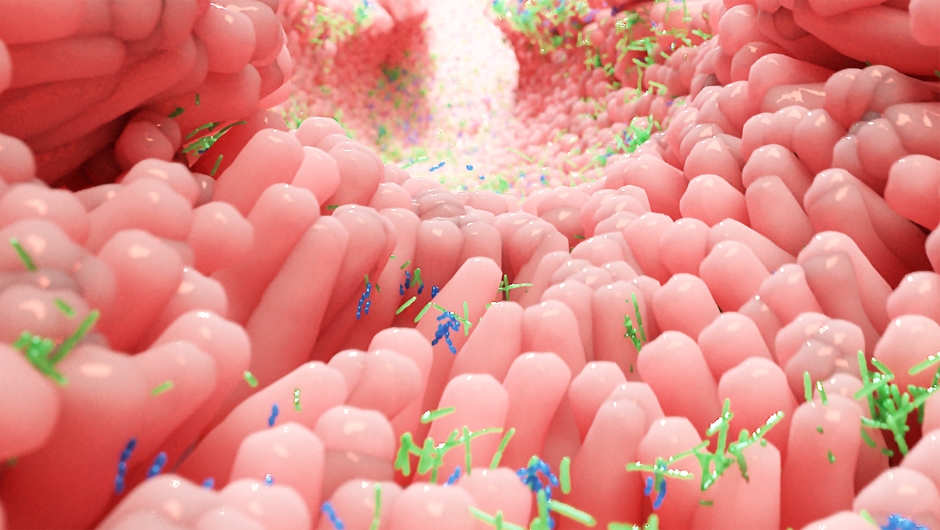Butyrate: Nature’s Gut-Healing Molecule

Most people think health depends on vitamins, proteins, or minerals. But hidden inside your gut, there’s a small molecule with massive power: butyrate. Unlike nutrients you eat directly, butyrate is made by your gut bacteria when they ferment fiber. In return, it fuels your gut lining, balances immunity, and even boosts brain power.
What Exactly is Butyrate?
Butyrate is a short-chain fatty acid (SCFA) created by beneficial bacteria in your large intestine. It’s not something you swallow in large amounts (except small traces in foods like butter and ghee). Instead, your bacteria make it when they digest fiber you can’t break down.
Think of it this way:
- You feed the bacteria with fiber.
- They produce butyrate.
- Butyrate fuels your gut and brain.
Without enough fiber, or without the right bacteria, your butyrate levels drop—and so does your health.
How Butyrate Heals the Gut
One of butyrate’s most powerful roles is maintaining the integrity of the gut lining. A healthy intestinal barrier prevents harmful substances—like toxins, undigested food particles, and pathogens—from leaking into the bloodstream. When this barrier breaks down, a condition often called “leaky gut” develops, leading to chronic inflammation, food sensitivities, and even autoimmune reactions.
Butyrate also has natural anti-inflammatory effects. It reduces the activity of inflammatory pathways inside the gut and promotes the growth of regulatory immune cells that keep the body’s defense system in balance. By calming inflammation, butyrate not only eases digestive symptoms but may also protect against long-term conditions such as colon cancer.
Butyrate and the Brain
One of butyrate’s most fascinating qualities is its ability to cross the blood-brain barrier. Once inside, it influences mood, focus, and memory.
- It increases BDNF (Brain-Derived Neurotrophic Factor), a protein that promotes brain cell growth and connectivity.
- Animal studies suggest it works as a natural antidepressant, sometimes more effectively than medication.
- It improves learning, memory, and resilience against stress.
Put simply: more butyrate in your gut often means better focus and a calmer mind.
Could You Be Low in Butyrate?
Modern lifestyles have made butyrate deficiency surprisingly common. People with digestive disorders like IBS, Crohn’s disease, or ulcerative colitis almost always have reduced levels. But even without a diagnosed condition, you might suspect low butyrate if you experience persistent bloating, loose stools, brain fog, food sensitivities, or chronic inflammation.
One of the clearest clues is how your body reacts to fiber. If you consistently struggle with gas, discomfort, or poor recovery after eating fiber-rich foods, it may be a sign that your butyrate-producing bacteria are missing or underperforming.
For those who want a definite answer, advanced stool tests like Genova GI Effects or GI-MAP can measure both butyrate levels and the abundance of bacteria that make it.
How to Boost Butyrate Naturally
The good news is that your diet can significantly increase butyrate production. Here are some simple ways:
- Cook and cool potatoes or rice → forms resistant starch that bacteria love.
- Green bananas or banana flour → excellent natural sources of resistant starch.
- Prebiotic foods like artichokes, onions, garlic, and asparagus feed butyrate-producing microbes.
- PHGG (Partially Hydrolyzed Guar Gum) → a prebiotic powder that encourages SCFA production.
- Ghee → one of the few foods containing butyrate directly.
What Lowers Butyrate and Damages Gut Health
Unfortunately, many modern dietary habits work against butyrate production. Overuse of antibiotics can wipe out butyrate-producing bacteria. Diets heavy in processed foods, artificial sweeteners, and emulsifiers—common in packaged foods and even ice creams—disrupt the gut microbiome.
Low-fiber diets are perhaps the most damaging. Without enough fiber, your gut bacteria simply cannot produce butyrate in meaningful amounts. Over time, this starves colon cells, weakens the gut lining, and triggers inflammation throughout the body.
Why Butyrate Matters Beyond Gut and Brain
Although butyrate is often discussed in the context of digestive and mental health, its benefits are much broader. Research has shown that higher butyrate levels can:
- Reduce the risk of colon cancer by supporting healthy cell turnover.
- Improve insulin sensitivity, helping regulate blood sugar and protect against type 2 diabetes.
- Balance the immune system, reducing the likelihood of allergies and autoimmune issues.
- Calm histamine responses, easing conditions like hay fever and certain food intolerances.
- Potentially improve developmental and behavioral outcomes in conditions such as autism.
In essence, butyrate is a master regulator that links gut health to whole-body wellness.